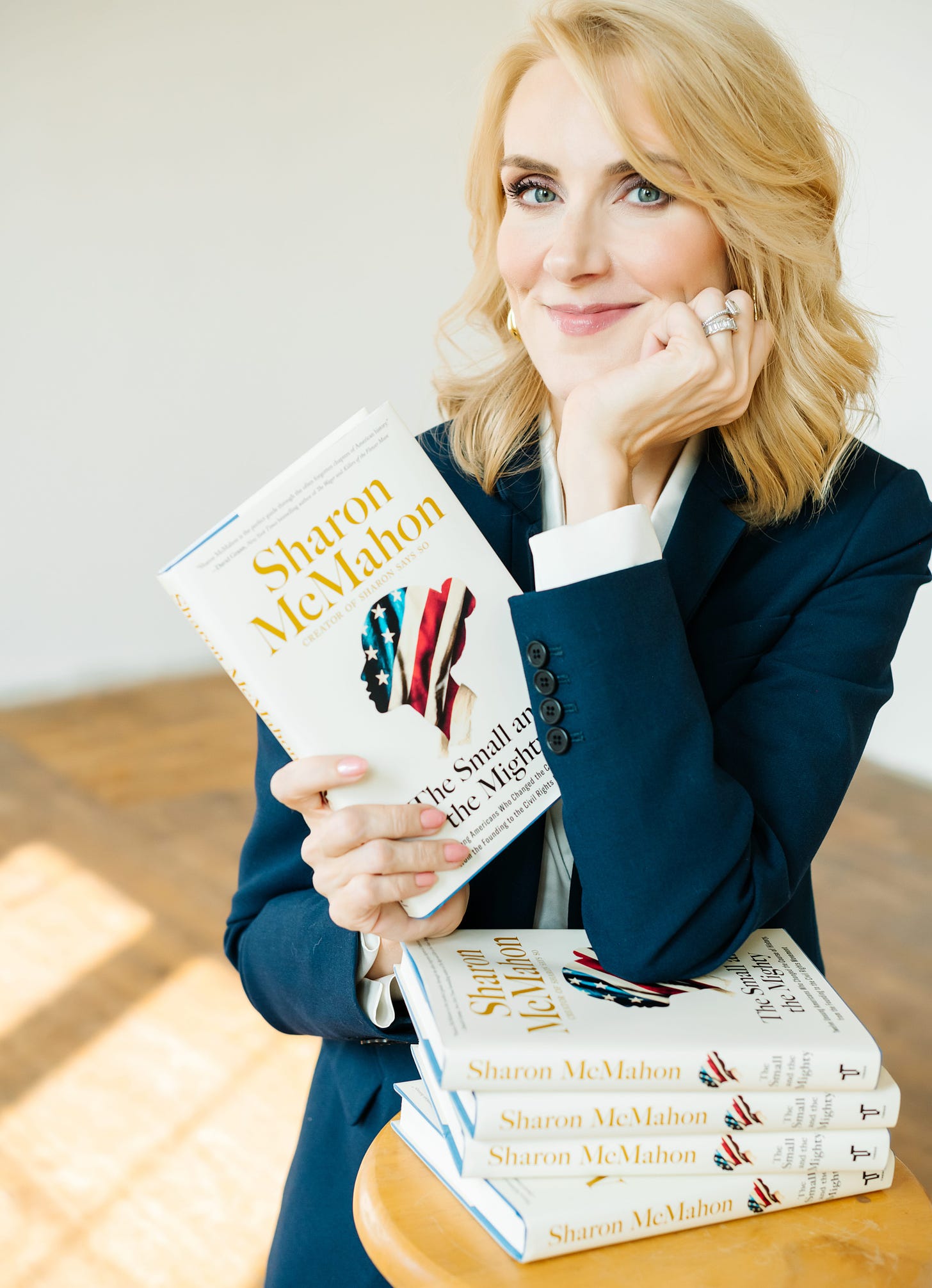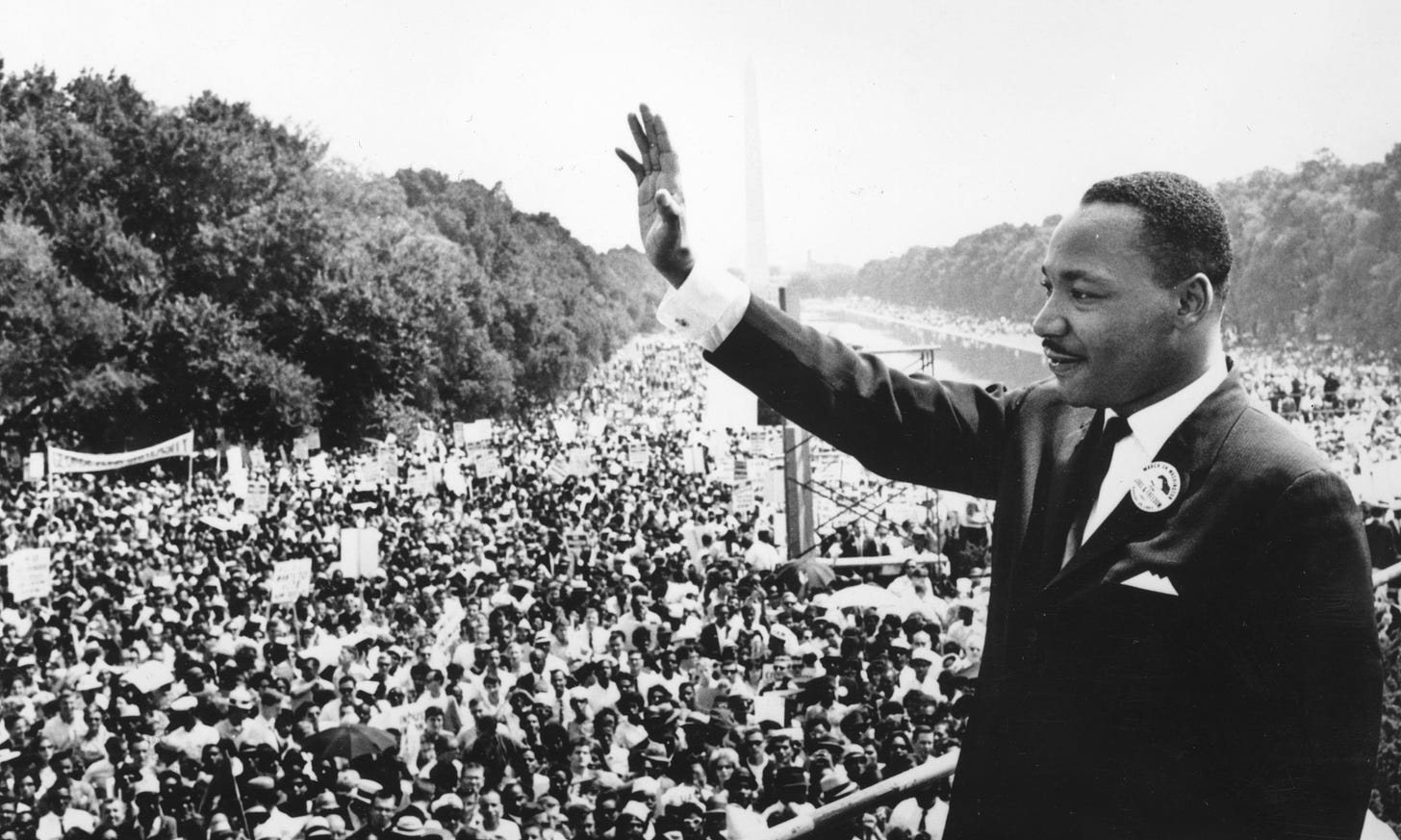Immigrant parents to American Dream: Ordinary people creating extraordinary change.
Immigrant parents to American Dream: Ordinary people creating extraordinary change.
Going from ordinary to extraordinary is as simple as adding five letters to a word.
My mom was a Cuban refugee who came to the states with the clothes on her back, and my dad was a machinist from Spain looking for an opportunity, armed with a limited grasp of the English language.
Yet somehow, they randomly came together and built a working-class family through grit, perseverance, and a drive to live the American dream, where two sons were able to live out their hopes and dreams and live quite a bit easier than the road they traveled.
Ordinary → Extraordinary.
With headlines about powerful politicians and influential celebrities dominating our feeds, it’s easy to wonder, “What difference can I really make?”
Recently, I spoke to Sharon McMahon, known as America’s Government Teacher and author of “The Small and the Mighty: 12 Unsung Americans Who Changed the Course of History,” where she offers a compelling answer: ordinary people have the power to create extraordinary change.

At first look, systems like the U.S. government can appear frustratingly slow and inflexible. But Sharon encourages us to view this apparent weakness as a source of strength. The very stability that can make change seem difficult is also what protects our rights and maintains order in society. It’s a delicate balance, but one that has served as the foundation for progress throughout history.
While voting is crucial, Sharon argues that we can’t simply cast our ballots and wait for politicians to enact the changes we want to see. Passionate people working within and outside existing systems often drive real change at the grassroots level.
Think about the Civil Rights Movement, a powerful example of ordinary people creating monumental change. This wasn’t a movement led primarily by politicians or coastal elites. Instead, everyday citizens, including many young people and even teenagers without access to traditional levers of power, drove it. Their courage, determination, and collective action reshaped the course of American history.
Sharon reminds us that age is no barrier to making a difference: Dr. Martin Luther King Jr. was only 39 when he was assassinated. Despite his young age, Dr. King’s impact on civil rights and social justice continues to resonate decades after his death. This serves as a powerful reminder that it’s not the length of one’s life that matters most, but the purpose with which it’s lived.

In “The Small and the Mighty,” Sharon shines a light on 12 lesser-known Americans who left an indelible mark on history. These people didn’t possess great wealth or hold high offices. They were ordinary people who saw injustice or inefficiency and decided to take action. Their stories serve as inspiration, showing us that we don’t need to wait for permission or perfect circumstances to start making a difference.
Sharon beautifully encapsulates the power of individual action with the statement, “The arc of the moral universe bends toward justice because ordinary people bend it.” This idea, inspired by Dr. King’s famous quote, places responsibility and the power for creating positive change squarely in our hands.
In today’s often polarized and fractious political climate, it’s easy to feel disillusioned and powerless. We’re bombarded with news of global challenges that seem insurmountable, and it can be tempting to retreat into apathy or cynicism. Sharon’s message serves as a powerful antidote to these feelings, reminding us that we each have agency and the ability to make a real difference in the world.
It’s important to remember that change doesn’t always have to be dramatic or world-altering to be meaningful. Sometimes, the most powerful actions start small:
These actions may seem modest, but they contribute to the fabric of a compassionate society. When multiplied across millions of us, we have the power to reshape communities, influence policy, and ultimately, change the world.
One of the most inspiring aspects of grassroots change is its potential for exponential growth. When we take action, we not only directly impact our immediate surroundings but we also inspire others to do the same. This creates a ripple effect, where a single act of courage or kindness can set off a chain reaction of positive change.
Sharon’s message is ultimately one of hope and empowerment. It reminds us that democracy is not a spectator sport but a participatory process that requires our ongoing engagement. By recognizing our individual power and embracing our responsibility to be active citizens, we can work together to address the challenges facing our communities and our world.
As we face the complexities of modern life, from climate change to social inequality, it’s more important than ever to remember the power of ordinary people. History has shown us time and again that the most significant changes often start with a single individual who refuses to accept the status quo.
I like to say that I don’t have a real job because my parents worked hard enough to cover for the next couple of generations of Pardavilas. Think about what you can do to change the fate of the people in your life and your community.
So, the next time you feel overwhelmed by the state of the world, remember Sharon McMahon’s words. You have the power to make a difference. Your voice matters. Your actions count. Ordinary people like you and me shape the future through our collective efforts, rather than it being set in stone. Let’s embrace our power, step up to the challenge, and work together to bend the arc of history toward justice, compassion, and progress.